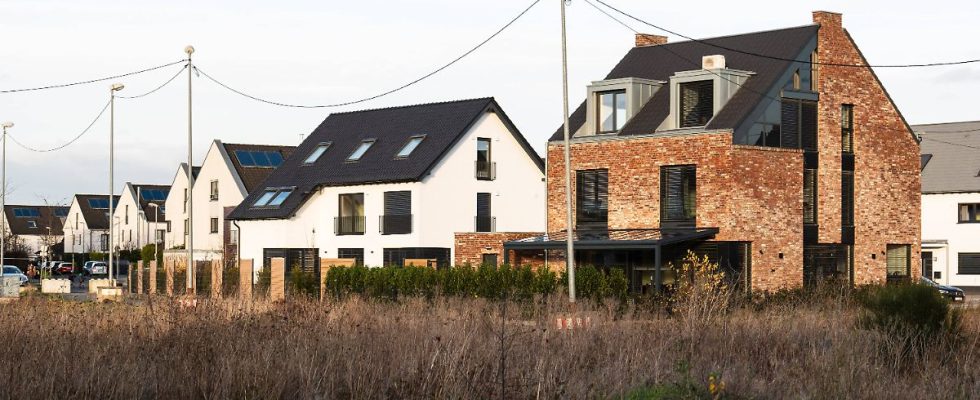Houses 11.3 percent cheaper
Real estate prices are in historic decline
February 8, 2024, 10:00 a.m
According to scientists from Kiel, residential property prices fell historically sharply last year. But that doesn’t mean there are bargains to be had on the market. Because the crash is preceded by a year-long rally.
According to a study, prices for German residential properties fell more sharply in 2023 than they have in at least 60 years. Condominiums fell in price by 8.9 percent, single-family homes by 11.3 percent and apartment buildings by 20.1 percent, as the Kiel Institute for the World Economy (IfW) announced. Adjusted for inflation – i.e. measured in current purchasing power – the reduction in value is even more significant: it is around five percentage points higher.
“The speed and extent of the current decline in real estate prices in Germany is historically unique,” it said. “Never since the appraisal committees began collecting purchase prices in the 1960s have real estate prices fallen so sharply so quickly.” However, the most recent price decline was preceded by a historically unique price rally that began around 2009. Since then, prices have risen three to four times, depending on the segment, before the sudden decline began in 2022.
“In view of the exorbitant price increases over the last ten years and a new interest rate environment, a phase of price correction is certainly appropriate and, even to the extent that it has been so far, is not worrisome for the overall economy,” said IfW President Moritz Schularick.
The pace slows
In the fourth quarter of 2023, the rate of price decline has slowed. Compared to the previous quarter, prices for condominiums only fell slightly by 0.6 percent and those for single-family homes fell by 1.2 percent. Multi-family houses even rose in price by 4.7 percent, but the fluctuations here are relatively high due to the low number of transactions.
According to the information, the sales prices for condominiums in Germany’s top 7 metropolises (Berlin, Düsseldorf, Frankfurt, Hamburg, Cologne, Munich, Stuttgart) show a very heterogeneous development. In Cologne and Stuttgart, prices fell quite significantly by 3.6 percent each quarter compared to the previous quarter. In Berlin (-0.4 percent), Frankfurt (-0.2 percent) and Hamburg (+0.2 percent) they moved more sideways.
“It is possible that real estate prices are beginning to bottom out,” said Schularick. However, this will only become apparent in the coming quarters. At least the behavior of the central banks suggests that interest rate cuts can be expected in the foreseeable future. “This means that real estate financing should also become cheaper again and thus stimulate demand,” said Schularick.
The study is based on the German Real Estate Index (Greix), a joint project of the expert committees for property values, ECONtribute and the IfW. The purchase price collections of the appraisal committees, which contain notarized sales prices, are evaluated.

